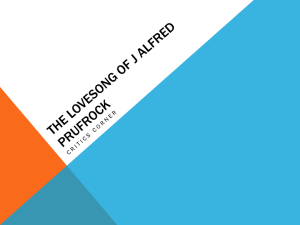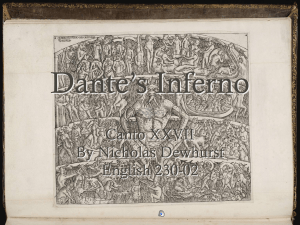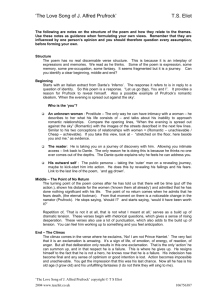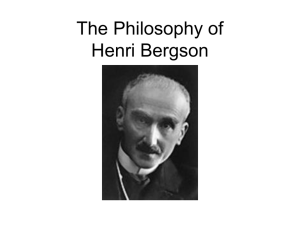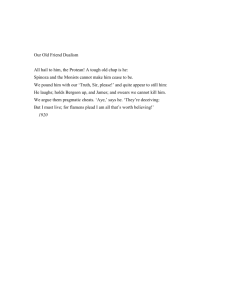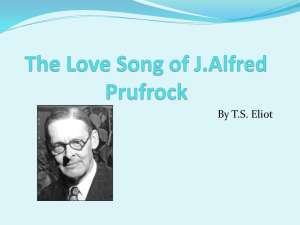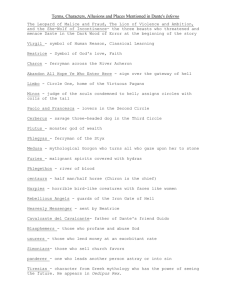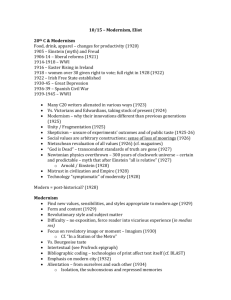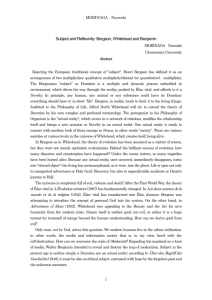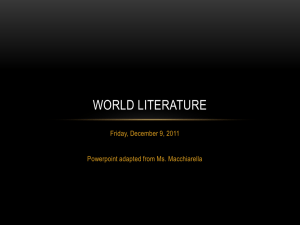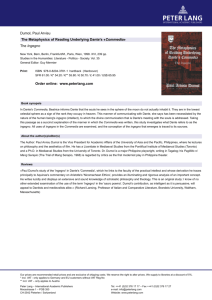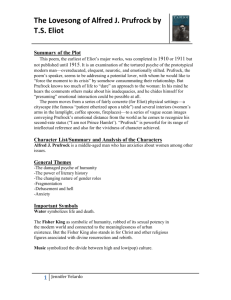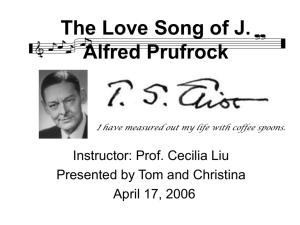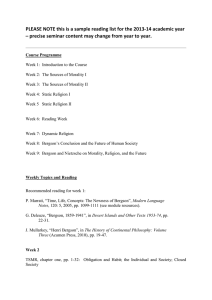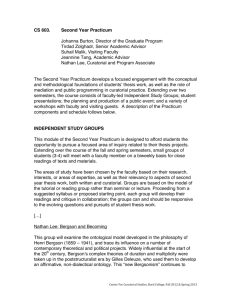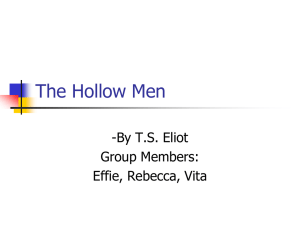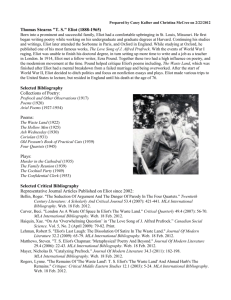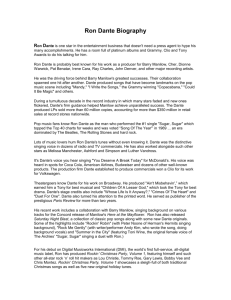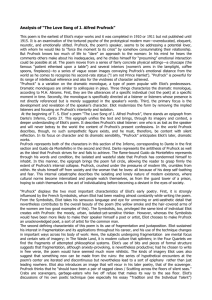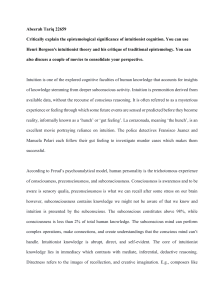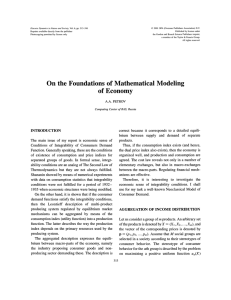Love Song of J
advertisement
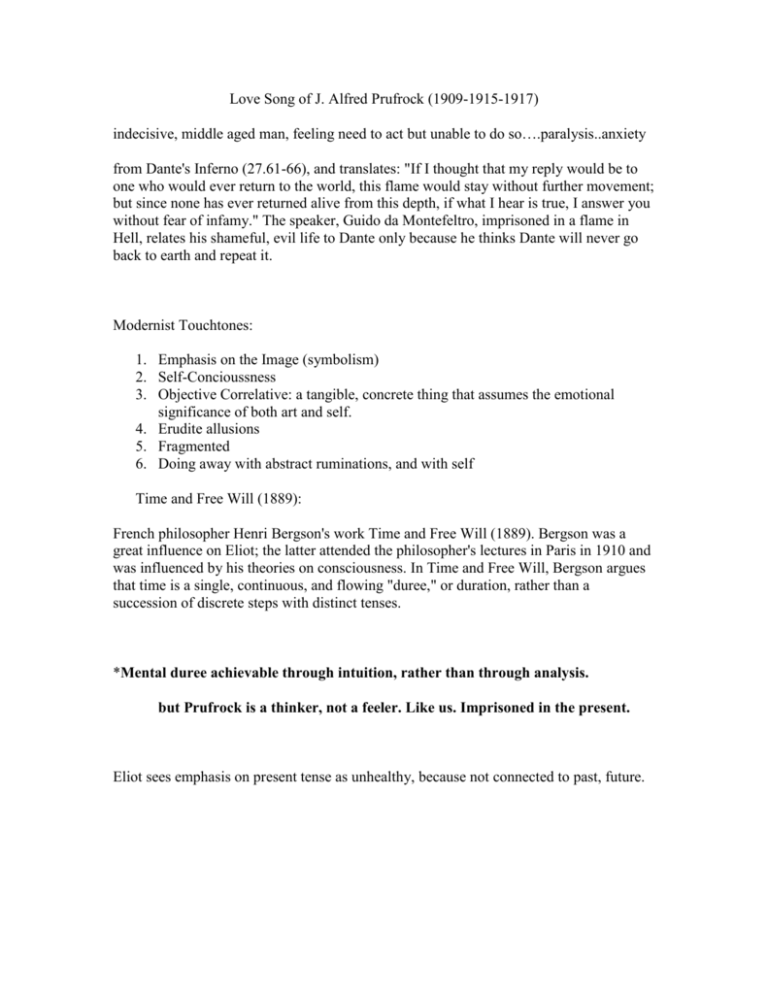
Love Song of J. Alfred Prufrock (1909-1915-1917) indecisive, middle aged man, feeling need to act but unable to do so….paralysis..anxiety from Dante's Inferno (27.61-66), and translates: "If I thought that my reply would be to one who would ever return to the world, this flame would stay without further movement; but since none has ever returned alive from this depth, if what I hear is true, I answer you without fear of infamy." The speaker, Guido da Montefeltro, imprisoned in a flame in Hell, relates his shameful, evil life to Dante only because he thinks Dante will never go back to earth and repeat it. Modernist Touchtones: 1. Emphasis on the Image (symbolism) 2. Self-Concioussness 3. Objective Correlative: a tangible, concrete thing that assumes the emotional significance of both art and self. 4. Erudite allusions 5. Fragmented 6. Doing away with abstract ruminations, and with self Time and Free Will (1889): French philosopher Henri Bergson's work Time and Free Will (1889). Bergson was a great influence on Eliot; the latter attended the philosopher's lectures in Paris in 1910 and was influenced by his theories on consciousness. In Time and Free Will, Bergson argues that time is a single, continuous, and flowing "duree," or duration, rather than a succession of discrete steps with distinct tenses. *Mental duree achievable through intuition, rather than through analysis. but Prufrock is a thinker, not a feeler. Like us. Imprisoned in the present. Eliot sees emphasis on present tense as unhealthy, because not connected to past, future.
